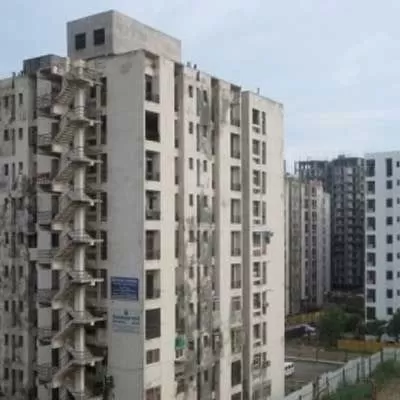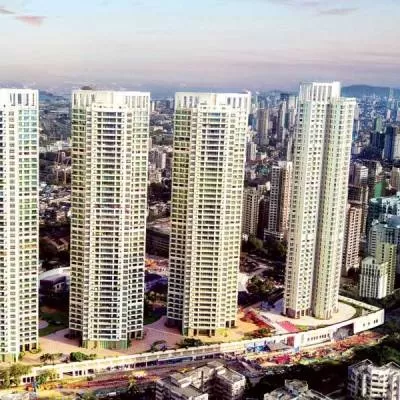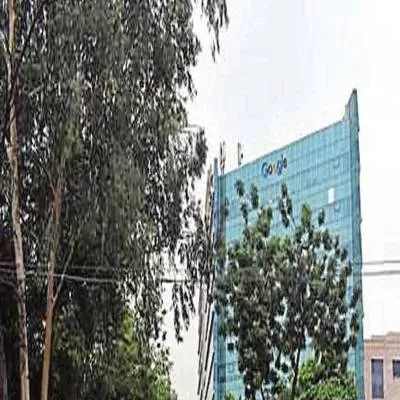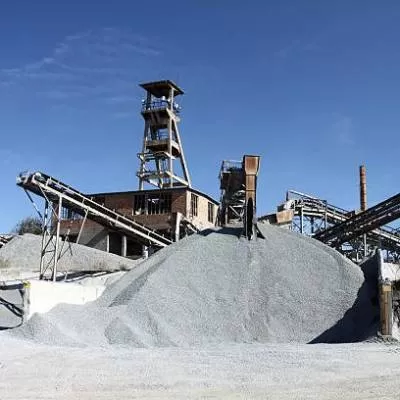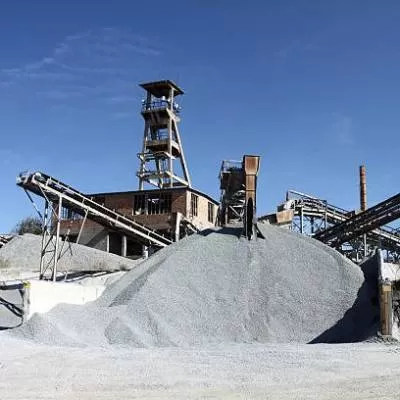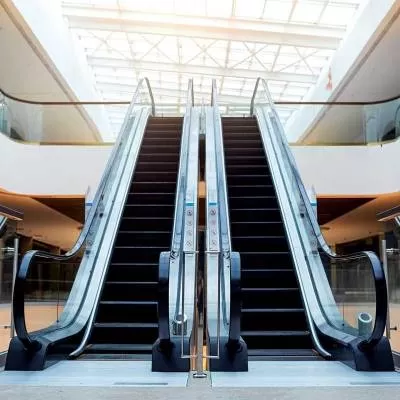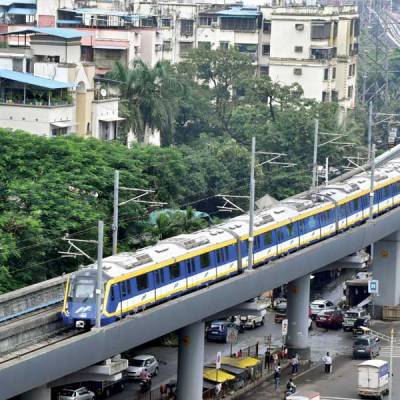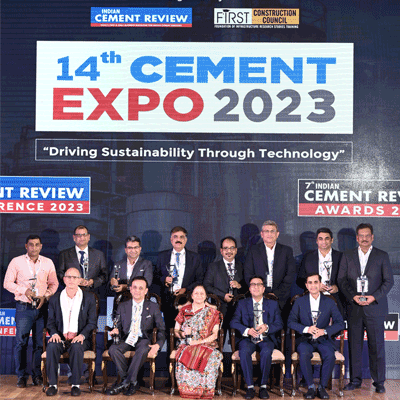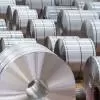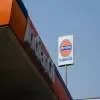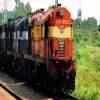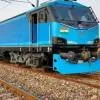- Home
- Building Material
- Cement
- Performance Check

Performance Check
With urbanisation on the upswing in India, there is a dire need to build structures with longevity. Taller and more robust structures require versatile construction materials such as high-performance concrete to impart comprehensive strength. And cement, along with being the basic raw material for concrete, also provides for its compressive strength.
To ensure the concrete produced is of high quality, it is imperative to test the performance of cement and concrete.
Thus, R&D to incorporate new materials in concrete and produce high-performance concrete with locally available materials is crucial. In view of this, Ambuja Cements has set up a network of eight Concrete Futures Laboratories (CFLs) across India. These are laboratories for testing, learning and experiencing cement and concrete, set up in line with the requirements of ISO/IEC 17025:2005. Umesh Soni, Sr Vice President & Corporate Head-Technical Services, Ambuja Cements, shares more on the need for testing concrete in India...
Enhancing concrete application: Manufacturing cement requires state-of-the-art advanced technology to ensure the highest level of quality control at various stages, from raw material collection to the final product. With concrete mainly used at construction sites for various applications and in high-rise construction, it must meet the designed performance criteria of workability, strength and durability.
For durability, impermeability of concrete is important, considering it is exposed to external factors that damage performance. Hence, various tests are required to check the durability. Also, in high-rise construction, checking Modulus of Elasticity (MoE) of concrete regularly is crucial to understand the performance of concrete. Further, with increased demand of concrete in various applications, the quality of other ingredients like coarse and fine aggregates, chemical and mineral admixtures, etc, is also critical, making it important to test the quality of ingredients in concrete other than cement.
Use of locally available materials: Traditionally, concrete has been made with the help of cement, coarse and fine aggregates and water. However, with its increased use for various applications and based on its performance requirement, various advanced concrete such as self-compacting concrete, pervious concrete, high-performance concrete and high volume fly-ash concrete are used. To produce such specialised concrete, new materials such as micro-fine cement, ultrafine slag, micro-fine fly-ash, matakaolin, PCE-based admixtures, curing compounds and fibres are used.
Tests and results: At Ambuja´s CFLs, various tests to check the physical and chemical properties of materials are conducted as per standard norms. These include testing on fresh and hardened concrete, which helps ensure the performance of concrete for its desired application. Continuous research is undertaken on optimising cost by using locally available materials and ensuring the best particle packing effect, which ultimately produces high-performance concrete.
First, the aggregates are analysed, sieving is done, specific gravity and Dry Loose Bulk Density (DLBD) are arrived at, and a concrete mix design is derived. After deriving the appropriate mix proportions, trials are conducted and performance criteria checked. The CFLs check whether the designed concrete achieves the specified strength. Machines such as the compressive testing machine (CTM), ranging from 1,000 kilonewton (KN) to 3,000 KN capacity, are used to check the comprehensive strength of concrete. Also, to check the durability of concrete, testing equipment is used; for self-compacting concrete, Rapid Chlorine Penetration Test (RCPT), the V funnel and box test are used.
Safety and quality standards: It is crucial to adhere to the conditions specified in Indian Standard Specifications when testing cement and concrete. These, as followed at Ambuja´s CFLs, include specific temperature, humidity in the laboratory and controlled temperature of curing water. The eight CFLs across India provide a gamut of services such as testing facilities, concrete mix design services and other special tests (see box). Of the eight, five labs are accredited to the National Accreditation Board for Testing and Calibration Laboratories (NABL), an autonomous body under the aegis of the Department of Science & Technology, Government of India. NABL accreditation indicates high-quality standards for various tests on concrete and concrete materials. Further, to ensure safety in the CFLs, PPEs such as proper material storage, ear plugs, safety goggles, safety shoes, safety jackets, hand gloves and nose masks are used. And, as a part of LafargeHolcim, Ambuja follows a strict Health & Safety (H&S) policy and adheres to the Zero Harm policy at job sites, plants and CFLs.
Specialised tests: To understand the performance of specialised concrete, tests are conducted in fresh and hardened state of concrete, such as V Funnel, U Tube Test, Segregation Resistance Test, Density of Fresh Concrete Test, etc. Similarly, customised or special tests are undertaken to assess the mechanical and rheological properties of concrete. Rheological properties are applicable to the behaviour of concrete when it is in a plastic stage. It is mainly relevant in terms of water demand and ease of working with concrete, for placing, compacting and finishing concrete, while mechanical properties are applicable to the behaviour of hardened concrete and are measured in terms of shrinkage, creep and modulus of elasticity of concrete.
Application and cost: Such testing is applicable to manufacturers of concrete and suppliers of concrete materials to ensure the quality of concrete ingredients. It is also useful for builders and contractors to keep a check on the quality of various ingredients as well as the final product to ensure optimum performance. While the total cost depends on the number of tests conducted and the type of concrete, it may range from Rs 2,000 to Rs 50,000.
Need for quality: It is evident that with demand for better quality construction, there is great demand for specialised concrete. This generates a large scope for services such as CFLs. And with the increase in high-rise construction, the demand for high performance and self-compacting concrete is growing.
As both these are specialised concrete, they require advanced construction materials, which have a great influence on concrete properties. Going forward, it is obvious that CFLs will provide total and customised solutions to the industry through testing of concrete and materials in a scientific way. Moreover, CFLs also enable the training and development of QA/QC engineers and conduct trials for optimising the performance and cost of concrete.
More labs such as these will undoubtedly bode well for quality construction.
Tests at Ambuja Cements' CFLs
Test on concrete materials - coarse and fine aggregates
- Sieve analysis
- Bulk density
- Specific gravity
- Flakiness index
- Elongation index
- Clay content test
- Particle shape and texture
- Water absorption
Test on physical properties of concrete
- Flow test
- Slump test
- Compaction factor
- V Funnel Test
- U Tube test
- Density of fresh concrete
- Yield of concrete
- Concrete temperature
- Setting time (initial and final)
- Cube compressive strength
- Accelerated curing test
- UPV test
- Rebound hammer test
- RCPT
- Entrapped air
- Special tests
- Modulus of elasticity of concrete
- Shrinkage of concrete
- Rheometer for checking viscosity of concrete
Compatibility test (Marsh Cone)
This test is used to check the compatibility of chemical admixture and cement. It is conducted in advance while finalising the brand of cement and chemical admixture with cost-benefit analysis
- Test on physical properties of cement
- Fineness test (dry)
- Standard consistency
- Setting time (initial and final)
- Compressive strength
- Density
- Compatibility with admixture
- Heat of hydration
- Fineness (By Blaine Apparatus)
Mix design services at Ambuja Cements' CFLs
- Normal concrete grades up to M55.
- High-strength and high-performance concrete above M55 grade.
- Self-compacting concrete.
- Fibre-reinforced concrete.
- Lightweight concrete and heavy-density concrete.
- Dry lean concrete and pavement quality concrete.
- High volume fly-ash concrete.
- Concrete mix for hollow and solid blocks.
- Special tests like
- HolcimBluTM (to quantify clay contamination in sand).
- HolcimShapeTM (to study shape of fine aggregates).
- SERAPHINA D´SOUZA To share your experience and insights on an interesting construction material, write in at feedback@ConstructionWord.in
With greater emphasis on quality construction, CW focuses on the need to test concrete to ensure its high performance. With urbanisation on the upswing in India, there is a dire need to build structures with longevity. Taller and more robust structures require versatile construction materials such as high-performance concrete to impart comprehensive strength. And cement, along with being the basic raw material for concrete, also provides for its compressive strength. To ensure the concrete produced is of high quality, it is imperative to test the performance of cement and concrete. Thus, R&D to incorporate new materials in concrete and produce high-performance concrete with locally available materials is crucial. In view of this, Ambuja Cements has set up a network of eight Concrete Futures Laboratories (CFLs) across India. These are laboratories for testing, learning and experiencing cement and concrete, set up in line with the requirements of ISO/IEC 17025:2005. Umesh Soni, Sr Vice President & Corporate Head-Technical Services, Ambuja Cements, shares more on the need for testing concrete in India... Enhancing concrete application: Manufacturing cement requires state-of-the-art advanced technology to ensure the highest level of quality control at various stages, from raw material collection to the final product. With concrete mainly used at construction sites for various applications and in high-rise construction, it must meet the designed performance criteria of workability, strength and durability. For durability, impermeability of concrete is important, considering it is exposed to external factors that damage performance. Hence, various tests are required to check the durability. Also, in high-rise construction, checking Modulus of Elasticity (MoE) of concrete regularly is crucial to understand the performance of concrete. Further, with increased demand of concrete in various applications, the quality of other ingredients like coarse and fine aggregates, chemical and mineral admixtures, etc, is also critical, making it important to test the quality of ingredients in concrete other than cement. Use of locally available materials: Traditionally, concrete has been made with the help of cement, coarse and fine aggregates and water. However, with its increased use for various applications and based on its performance requirement, various advanced concrete such as self-compacting concrete, pervious concrete, high-performance concrete and high volume fly-ash concrete are used. To produce such specialised concrete, new materials such as micro-fine cement, ultrafine slag, micro-fine fly-ash, matakaolin, PCE-based admixtures, curing compounds and fibres are used. Tests and results: At Ambuja´s CFLs, various tests to check the physical and chemical properties of materials are conducted as per standard norms. These include testing on fresh and hardened concrete, which helps ensure the performance of concrete for its desired application. Continuous research is undertaken on optimising cost by using locally available materials and ensuring the best particle packing effect, which ultimately produces high-performance concrete. First, the aggregates are analysed, sieving is done, specific gravity and Dry Loose Bulk Density (DLBD) are arrived at, and a concrete mix design is derived. After deriving the appropriate mix proportions, trials are conducted and performance criteria checked. The CFLs check whether the designed concrete achieves the specified strength. Machines such as the compressive testing machine (CTM), ranging from 1,000 kilonewton (KN) to 3,000 KN capacity, are used to check the comprehensive strength of concrete. Also, to check the durability of concrete, testing equipment is used; for self-compacting concrete, Rapid Chlorine Penetration Test (RCPT), the V funnel and box test are used. Safety and quality standards: It is crucial to adhere to the conditions specified in Indian Standard Specifications when testing cement and concrete. These, as followed at Ambuja´s CFLs, include specific temperature, humidity in the laboratory and controlled temperature of curing water. The eight CFLs across India provide a gamut of services such as testing facilities, concrete mix design services and other special tests (see box). Of the eight, five labs are accredited to the National Accreditation Board for Testing and Calibration Laboratories (NABL), an autonomous body under the aegis of the Department of Science & Technology, Government of India. NABL accreditation indicates high-quality standards for various tests on concrete and concrete materials. Further, to ensure safety in the CFLs, PPEs such as proper material storage, ear plugs, safety goggles, safety shoes, safety jackets, hand gloves and nose masks are used. And, as a part of LafargeHolcim, Ambuja follows a strict Health & Safety (H&S) policy and adheres to the Zero Harm policy at job sites, plants and CFLs. Specialised tests: To understand the performance of specialised concrete, tests are conducted in fresh and hardened state of concrete, such as V Funnel, U Tube Test, Segregation Resistance Test, Density of Fresh Concrete Test, etc. Similarly, customised or special tests are undertaken to assess the mechanical and rheological properties of concrete. Rheological properties are applicable to the behaviour of concrete when it is in a plastic stage. It is mainly relevant in terms of water demand and ease of working with concrete, for placing, compacting and finishing concrete, while mechanical properties are applicable to the behaviour of hardened concrete and are measured in terms of shrinkage, creep and modulus of elasticity of concrete. Application and cost: Such testing is applicable to manufacturers of concrete and suppliers of concrete materials to ensure the quality of concrete ingredients. It is also useful for builders and contractors to keep a check on the quality of various ingredients as well as the final product to ensure optimum performance. While the total cost depends on the number of tests conducted and the type of concrete, it may range from Rs 2,000 to Rs 50,000. Need for quality: It is evident that with demand for better quality construction, there is great demand for specialised concrete. This generates a large scope for services such as CFLs. And with the increase in high-rise construction, the demand for high performance and self-compacting concrete is growing. As both these are specialised concrete, they require advanced construction materials, which have a great influence on concrete properties. Going forward, it is obvious that CFLs will provide total and customised solutions to the industry through testing of concrete and materials in a scientific way. Moreover, CFLs also enable the training and development of QA/QC engineers and conduct trials for optimising the performance and cost of concrete. More labs such as these will undoubtedly bode well for quality construction. Tests at Ambuja Cements' CFLs Test on concrete materials - coarse and fine aggregates Sieve analysis Bulk density Specific gravity Flakiness index Elongation index Clay content test Particle shape and texture Water absorption Test on physical properties of concrete Flow test Slump test Compaction factor V Funnel Test U Tube test Density of fresh concrete Yield of concrete Concrete temperature Setting time (initial and final) Cube compressive strength Accelerated curing test UPV test Rebound hammer test RCPT Entrapped air Special tests - Holcim heat - Modulus of elasticity of concrete - Shrinkage of concrete - Rheometer for checking viscosity of concrete Compatibility test (Marsh Cone) This test is used to check the compatibility of chemical admixture and cement. It is conducted in advance while finalising the brand of cement and chemical admixture with cost-benefit analysis Test on physical properties of cement Fineness test (dry) Standard consistency Setting time (initial and final) Compressive strength Density Compatibility with admixture Heat of hydration Fineness (By Blaine Apparatus) Mix design services at Ambuja Cements' CFLs Normal concrete grades up to M55. High-strength and high-performance concrete above M55 grade. Self-compacting concrete. Fibre-reinforced concrete. Lightweight concrete and heavy-density concrete. Dry lean concrete and pavement quality concrete. High volume fly-ash concrete. Concrete mix for hollow and solid blocks. Special tests like - HolcimConeTM (to assess mechanical and rheological properties of concrete). - HolcimBluTM (to quantify clay contamination in sand). - HolcimShapeTM (to study shape of fine aggregates). - SERAPHINA D´SOUZA To share your experience and insights on an interesting construction material, write in at feedback@ConstructionWord.in


